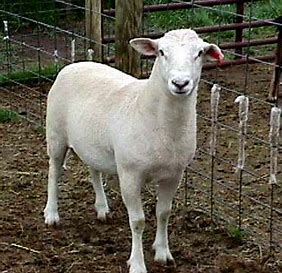

Livestock can suffer stress even during normal handling, increasing their susceptibility to a number of serious diseases.
Stress is defined as an external influence on the balance (homeostasis) of a system, which at any moment can produce a negative reaction.
Homeostasis maintains the stability of the body’s internal environment in response to external change. On a very hot day, for example, the animal stays in the shade, drinks more water and eats less.This behaviour, called ‘thermo regulation’, reduces stress.
Thermo regulation is easier on hot days than during cold spells, which is why stress-related diseases are more common during the transition from autumn to winter.
Recent research shows that an animal cannot maintain homeostasis properly even during routine handling. In other words, it suffers stress.
There may be no obvious signs of this, but the animal is certainly more susceptible to stress-related diseases such as coccidiosis and pasteurellosis.
When an animal (or human) is stressed, it releases the steroid hormone cortisol to supply energy in the form of glucose that enables it to escape from the stressor such as by running away. In the short term, the animal benefits from this cortisol release; in the long term, however, it suffers negative consequences.
Too much cortisol released due to this constant stress can impair reproduction, while a compromised immune system increases the animal’s susceptibility to disease.
The mechanism of the immune-suppressive effect of stress is still uncertain, but stressed animals have a less effective response to pathogens than unstressed animals.
This is frequently seen in the livestock industry, which relies mainly on vaccines to prevent disease. A farmer will often say that a vaccine is not working properly, when in fact an animal with a high concentration of circulating cortisol cannot mount an efficient immune response.
Diseases typically associated with stress are pasteurellosis, Mannheimia haemolytica, and coccidiosis. Most of these pathogens are opportunistic organisms that occur naturally in livestock, but kept under control by the immune system.
Immunity develops either through vaccination or through continuous exposure to a low and non-fatal level of infection. But stress (from a high cortisol level) can lower this immunity to such an extent that the animal contracts the disease.
 Contact Jaguza Support
Contact Jaguza Support